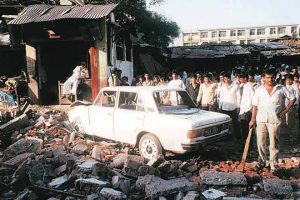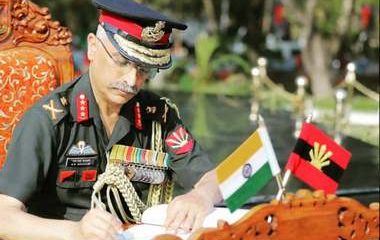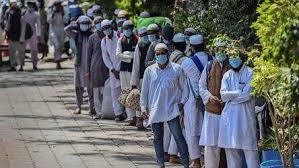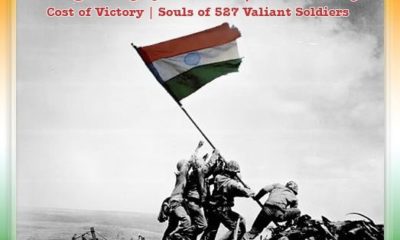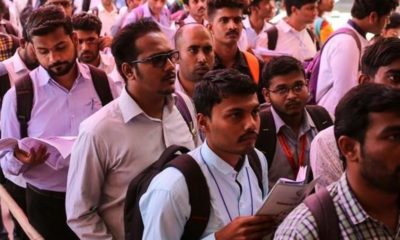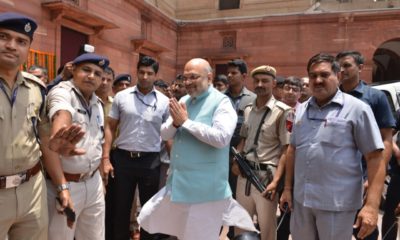Feature
1993 Mumbai blasts verdict, Abu Salem, 5 others convicted
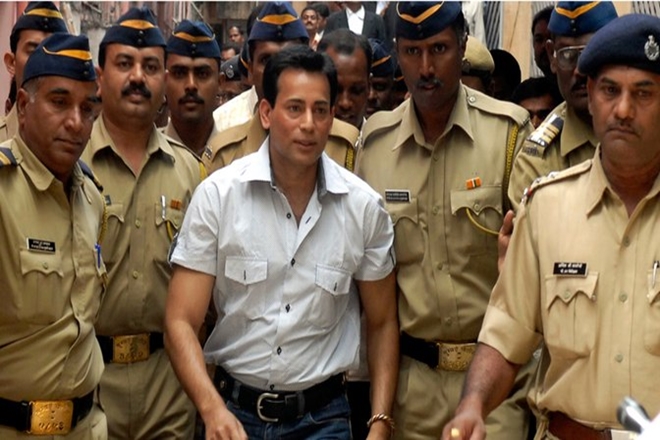
MUMBAI: A special Terrorist and Disruptive Activities (Prevention) Act or TADA court in Mumbai today held guilty Abu salem and five others in the 1993 Mumbai blast case involving extradited gangster Abu Salem.
The blasts had left 257 people dead, 713 seriously injured and destroyed properties worth Rs. 27 crore.
In the first leg of the trial that concluded in 2007, the TADA court had convicted 100 accused in the case, while 23 people were acquitted.
The trial of the seven accused Abu Salem, Mustafa Dossa, Karimullah Khan, Firoz Abdul Rashid Khan, Riyaz Siddiqui, Tahir Merchant and Abdul Quayyum were separated from the main case as they were arrested at the time of conclusion of the main trial.
Abu Salem was accused of transporting weapons from Gujarat to Mumbai. He also handed over to actor Sanjay Dutt, who was an accused in the case for illegally possessing weapons, AK 56 rifles, 250 bullets and some hand grenades at his residence on January 16, 1993. Two days later on January 18, 1993, Abu Salem and two others went to Sanjay Dutt’s house and got back two rifles and some rounds.
The court had dropped certain charges against Abu Salem in 2013 after the investigating agency CBI moved a plea, saying those charges were against the extradition treaty between India and Portugal.
Mustafa Dossa is said to have masterminded the landing of explosives including RDX in India and sent some youth to Pakistan to acquire arms training. The court, in all, recorded statements of around 750 prosecution witnesses and 50 witnesses. Three accused including Abu Salem had confessed to their crime during investigations carried out by the CBI over the years into the blasts case.
Though the hearing in the case began in 2007, it was delayed as three petitions were pending with the Supreme Court, one each filed by Mustafa Dossa and Abu Salem, and another by the CBI.
The trial resumed in 2012 and concluded this year in March. The case (involving the seven accused) was first heard by judge Pramod Kode, who had also delivered the judgement in the first leg of the trial and convicted 100 accused and acquitted 23 in 2007.
Later, judge DU Mullah presided over the TADA court, and the case is now being heard by judge GA Sanap.
It was during the trial in 2013 that the Supreme Court pronounced a judgement on appeal filed by all the accused where in key conspirator Yakub Memon’s death sentence was confirmed, while that of others (all bomb planters) were commuted to life imprisonment.
Sanjay Dutt and many others surrendered before the TADA court in Mumbai in May 2013 after the Supreme Court upheld their conviction.
Yakub Memon was executed on July 30, 2015 after his several pleas seeking clemency were rejected, including the post-midnight hearing by Supreme Court on the day he was hanged.
On March 12, 1993 Mumbai witnessed an unprecedented terrorist attack when a series of 12 bomb explosions took place one after another in a span of about two hours.
The blasts took place at the Bombay Stock Exchange, Katha Bazaar, Lucky petrol pump near Sena Bhavan, opposite Passport office near Century Bazaar, Fishermen’s colony at Mahim Causeway, at basement of Air India Building, Zaveri Bazaar, Hotel Sea Rock, Plaza Theatre, Centaur Hotel (Juhu), Sahar Airport (Bay no.54) and Centaur Hotel (near Mumbai airport).
This was the first ever terrorist attack in the world where RDX (Research Department Explosive i.e cyclotrimethylene trinitramine) was used on such a large scale since the Second World War.
According to the prosecution, in order to avenge the demolition of the Babri Masjid, members of the crime syndicate under the fugitive terrorist Dawood Ibrahim along with other absconding terror masterminds Tiger Memon, Mohammed Dossa and Mustafa Dossa (who is presently facing trial) hatched a conspiracy to commit acts of terrorism in India.
The prosecution said that the aim of the crime was to commit terrorist acts with intent to overawe the Government of India, to strike terror on the people of India, alienate section of society and to harm communal harmony.
It said that the terror conspirators smuggled fire-arms, ammunition, detonators, hand grenades and highly explosive substances like RDX into India and stored it.
Entertainment
Meghalaya Reserves Legalized Gambling and Sports Betting for Tourists

The State Scores Extra High on Gaming-Friendly Industry Index
Meghalaya scored 92.85 out of 100 possible points in a Gaming Industry Index and proved to be India’s most gaming-friendly state following its recent profound legislation changes over the field allowing land-based and online gaming, including games of chance, under a licensing regime.
The index by the UK India Business Council (UKIBC) uses a scale of 0 to 100 to measure the level of legalisation on gambling and betting achieved by a state based on the scores over a set of seven different games – lottery, horse racing, betting on sports, poker, rummy, casino and fantasy sports
Starting from February last year, Meghalaya became the third state in India’s northeast to legalise gambling and betting after Sikkim and Nagaland. After consultations with the UKIBC, the state proceeded with the adoption of the Meghalaya Regulation of Gaming Act, 2021 and the nullification of the Meghalaya Prevention of Gambling Act, 1970. Subsequently in December, the Meghalaya Regulation of Gaming Rules, 2021 were notified and came into force.
All for the Tourists
The move to legalise and license various forms of offline and online betting and gambling in Meghalaya is aimed at boosting tourism and creating jobs, and altogether raising taxation revenues for the northeastern state. At the same time, the opportunities to bet and gamble legally will be reserved only for tourists and visitors.
“We came out with a Gaming Act and subsequently framed the Regulation of Gaming Rules, 2021. The government will accordingly issue licenses to operate games of skill and chance, both online and offline,” said James P. K. Sangma, Meghalaya State Law and Taxation Minister speaking in the capital city of Shillong. “But the legalized gambling and gaming will only be for tourists and not residents of Meghalaya,” he continued.
To be allowed to play, tourists and people visiting the state for work or business purposes will have to prove their non-resident status by presenting appropriate documents, in a process similar to a bank KYC (Know Your Customer) procedure.
Meghalaya Reaches Out to a Vast Market
With 140 millions of people in India estimated to bet regularly on sports, and a total of 370 million desi bettors around prominent sporting events, as per data from one of the latest reports by Esse N Videri, Meghalaya is set to reach out and take a piece of a vast market.
Estimates on the financial value of India’s sports betting market, combined across all types of offline channels and online sports and cricket predictions and betting platforms, speak about amounts between $130 and $150 billion (roughly between ₹9.7 and ₹11.5 lakh crore).
Andhra Pradesh, Telangana and Delhi are shown to deliver the highest number of bettors and Meghalaya can count on substantial tourists flow from their betting circles. The sports betting communities of Karnataka, Maharashtra, Uttar Pradesh and Haryana are also not to be underestimated.
Among the sports, cricket is most popular, registering 68 percent of the total bet count analyzed by Esse N Videri. Football takes second position with 11 percent of the bets, followed by betting on FIFA at 7 percent and on eCricket at 5 percent. The last position in the Top 5 of popular sports for betting in India is taken by tennis with 3 percent of the bet count.
Local Citizens will Still have Their Teer Betting
Meghalaya residents will still be permitted to participate in teer betting over arrow-shooting results. Teer is a traditional method of gambling, somewhat similar to a lottery draw, and held under the rules of the Meghalaya Regulation of the Game of Arrow Shooting and the Sale of Teer Tickets Act, 2018.
Teer includes bettors wagering on the number of arrows that reach the target which is placed about 50 meters away from a team of 20 archers positioned in a semicircle.
The archers shoot volleys of arrows at the target for ten minutes, and players place their bets choosing a number between 0 and 99 trying to guess the last two digits of the number of arrows that successfully pierce the target.
If, for example, the number of hits is 256, anyone who has bet on 56 wins an amount eight times bigger than their wager.





